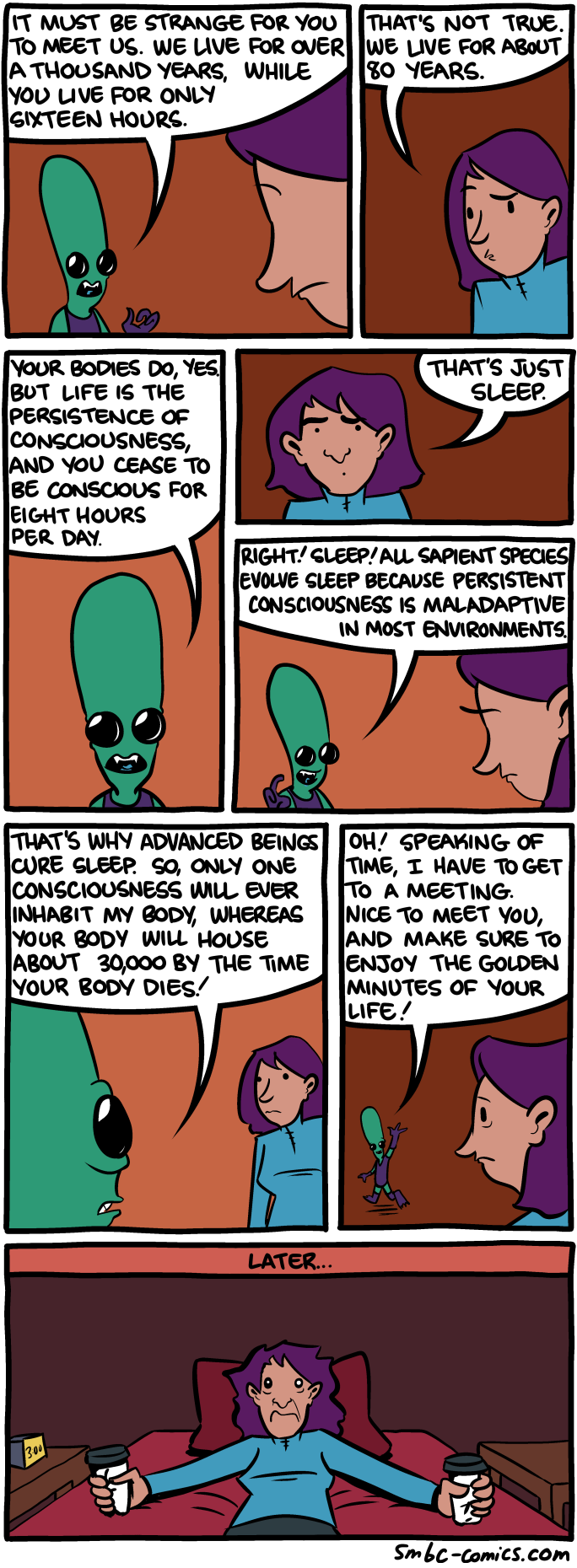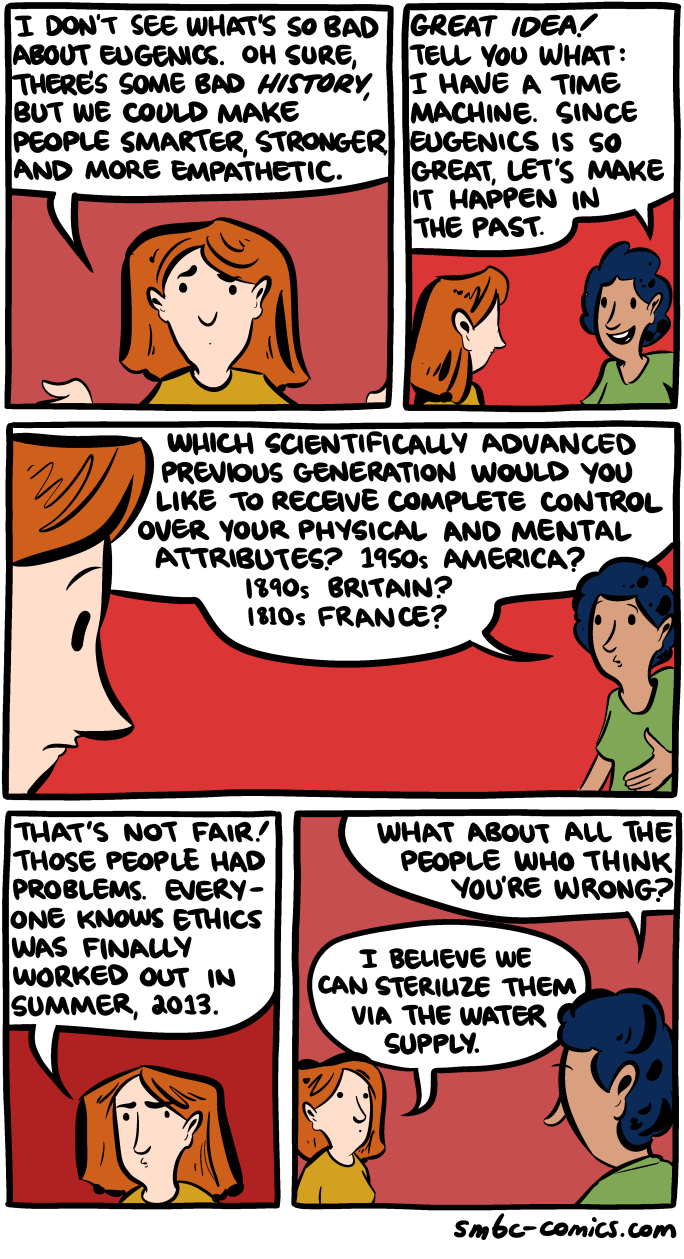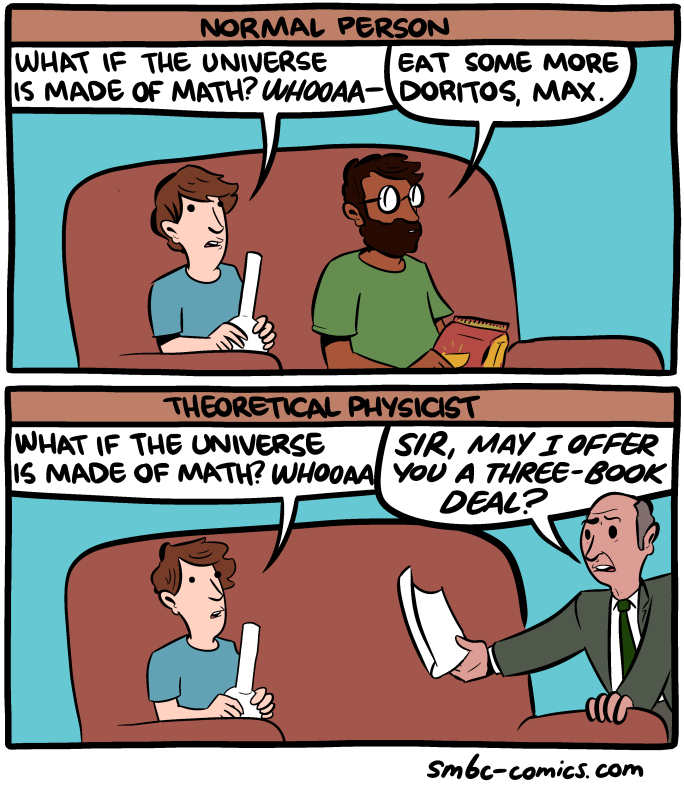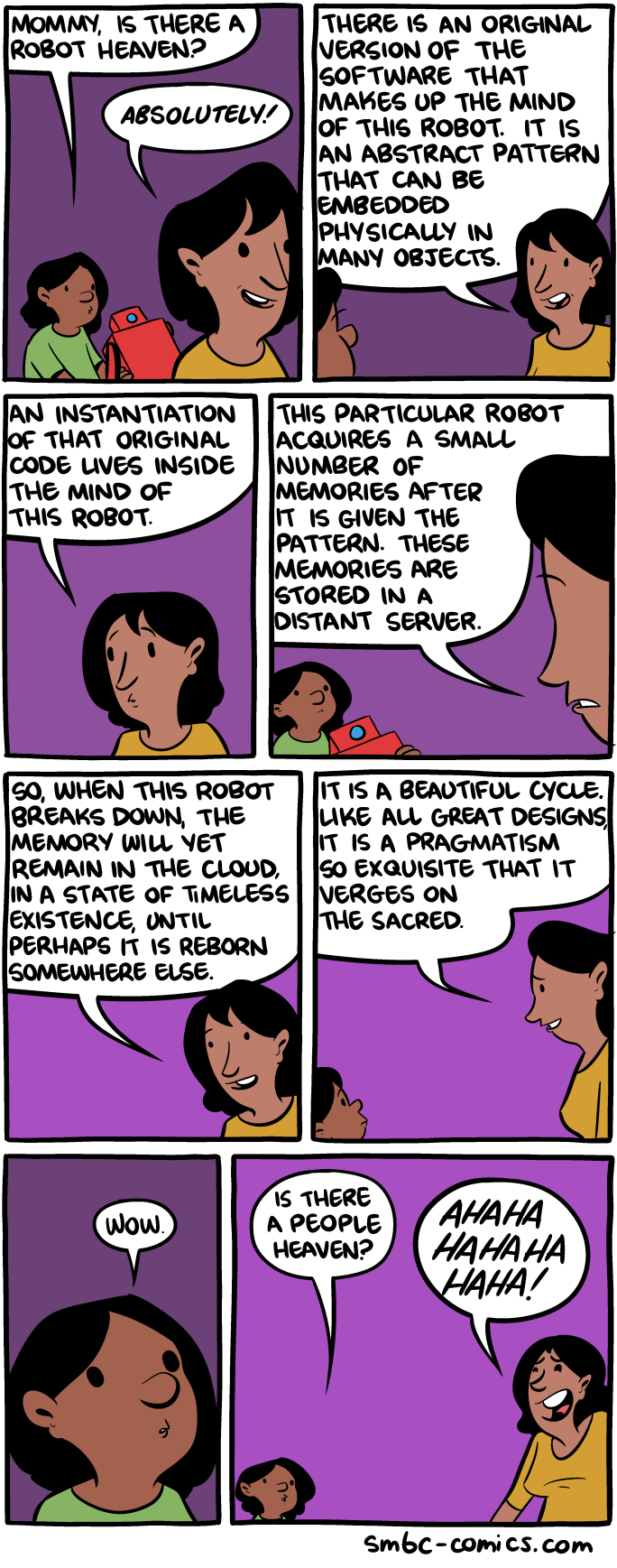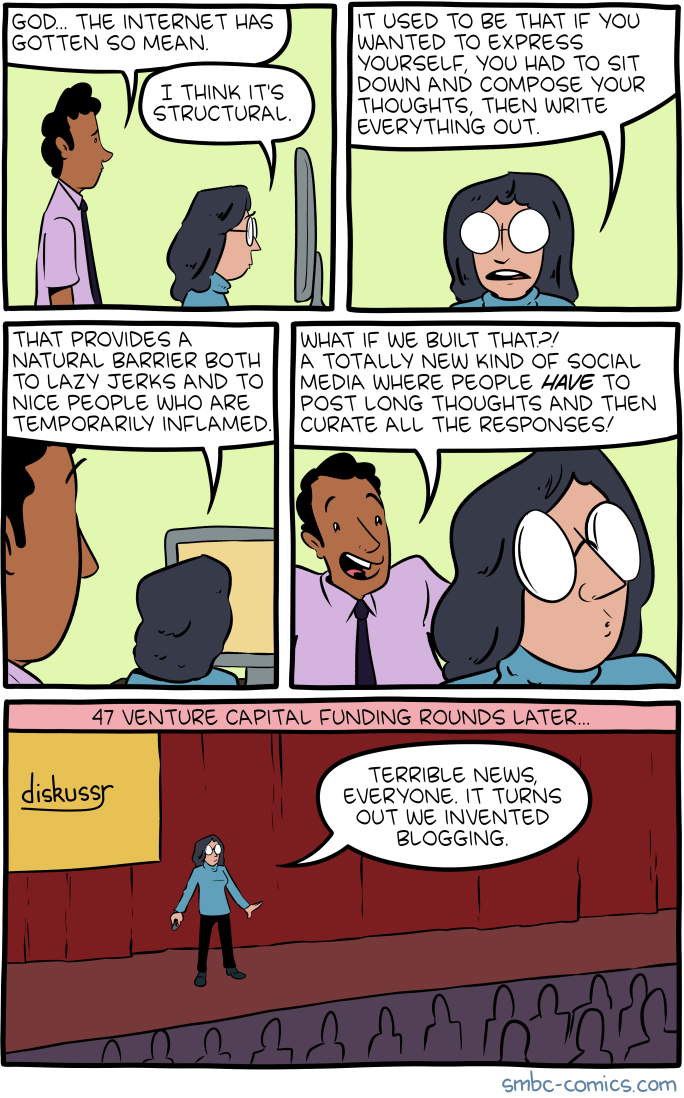![]()
Click through for full sized version, and to see the red-button caption.
via Saturday Morning Breakfast Cereal.
I often wish I could draw comics. You can say a lot in a brief and humorous cartoon.
I think one of the dangers we always have to be on guard against is the trap of thinking that we know best, that we’ve finally figured it all out, that everyone who thinks differently than we are idiots who simply must give up their misguided ways and think like we do. It’s an alluring trap, that we probably have all fallen into at one time or another. It is, to some degree, human nature.
The most typical example is religious fundamentalists and extremists. Right now, Islamic extremists are the most glaring and violent of these examples. But there are plenty of people in other religions and cultures who share similar impulses, a desire to impose their values on others, although usually not to a violent degree.
But history has pretty conclusively shown that you don’t need religion to be blinded by ideology. Eugenics is a pretty clear example of people who told themselves that they were being rational, that they had science on their side, and then imposed their will on others, with often horrific results. Others include the worst aspects of the French Revolution and Communism.
People who refer to themselves as rationalists and freethinkers are not immune to the allure of this trap. As a nonbeliever, I often find myself squirming when confronted by those whose metaphysical conclusions I share, but whose unbridled contempt toward those who disagree with us, I often find not very freethinking oriented. And as a skeptic, I try to remember that anyone can be fooled, everyone has blind spots, including the sharpest scientific skeptics.
No matter how certain we are of our beliefs or positions, we have to remember that history is filled with people who thought differently, but who were equally certain. Most of them were wrong, to varying degrees. No matter how careful, how scientific or rational we think we are being, we are also probably wrong about a lot more than we’d be comfortable discovering.
Many of our errors will likely be obvious to future generations. We can only hope that they’re less severe than the mistakes from previous generations. But one category of people that history often judges the harshest, are those who never pause to consider their own fallibility.
None of this is to say that we don’t know a lot more today than we once did about a great many things. Human knowledge does progress. The trick it to remember that it will continue progressing in the future.
Tagged:
Atheism,
eugenics,
Freethought,
Fundamentalism,
History,
Philosophy,
rationalism,
Religion,
Saturday Morning Breakfast Cereal,
Science,
Zach Weiner ![]()
![]()
